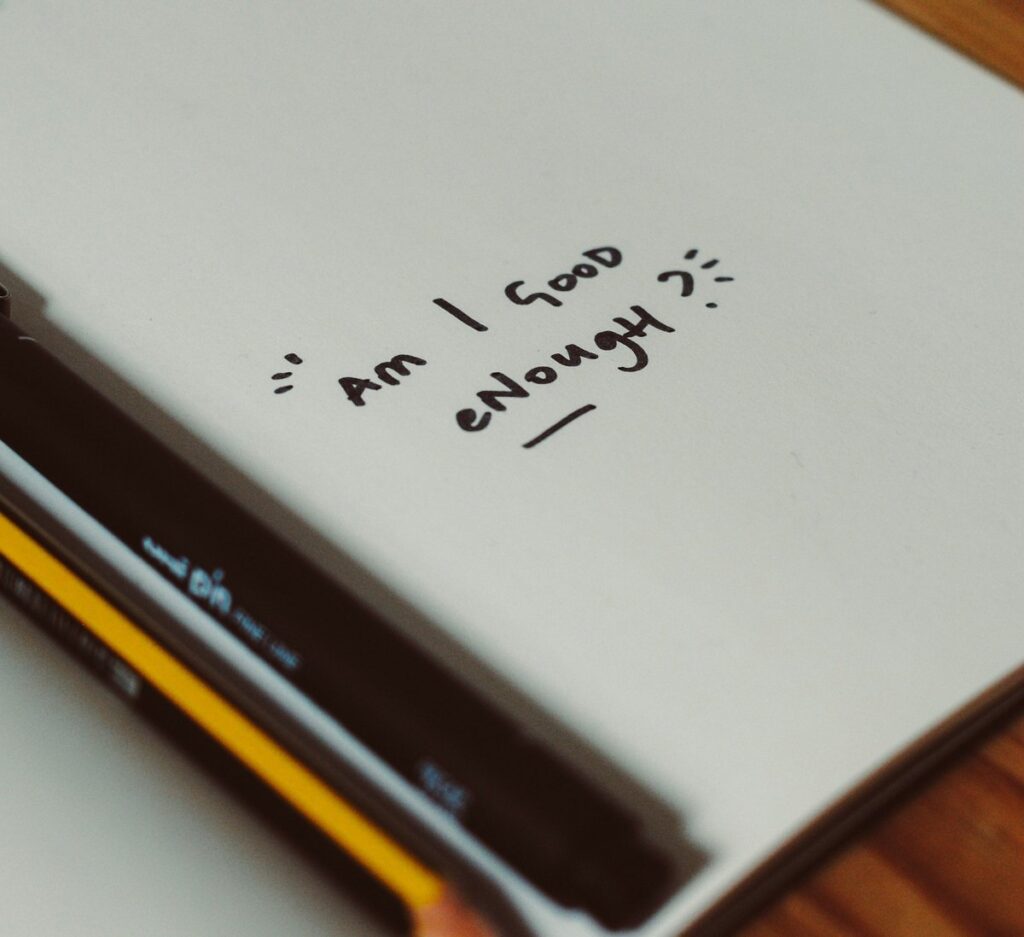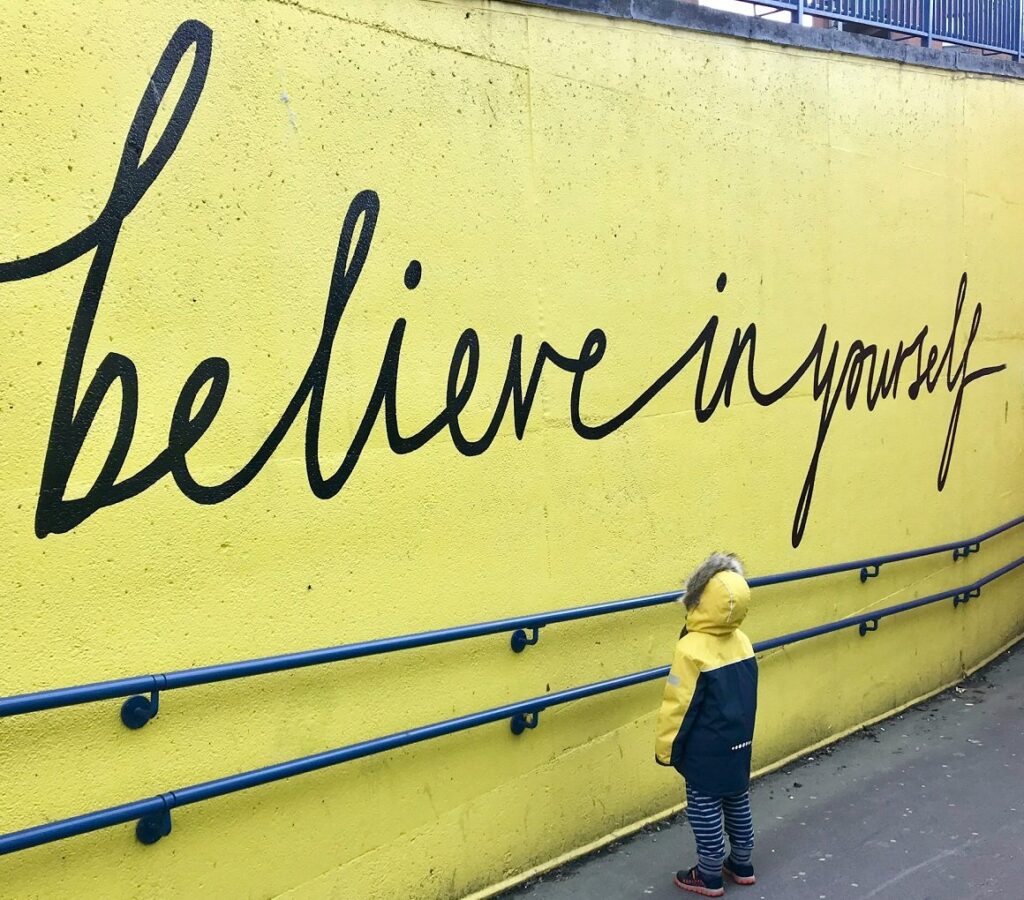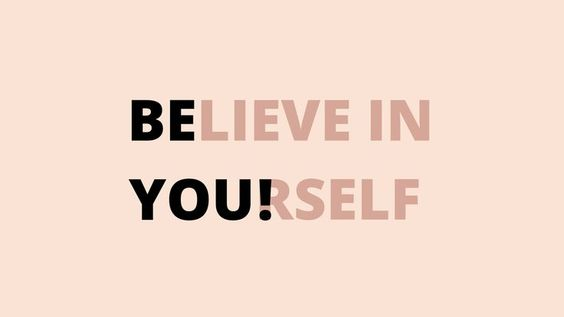One Sunday morning from a park, a sweet buzzing sound of a beautiful butterfly came while hovering over a flower. A boy and his grandfather went for a regular walk. As soon as the boy saw the butterfly, he was attracted by its beautiful coloured wings and buzzing sound.
He excitedly ran to chase the butterfly. And for the first time, he was successful. He tightly captured it in his palms. However, the butterfly soon died due to its tight grasp and lost its wings and colours. The boy got heartbroken and started crying.
Hearing the grandson cry, the grandfather asks him what has happened. He narrates the whole story. He says, “He had captured the butterfly, but the wings got broken, and the beautiful butterfly died”.
Listening to the whole incident, the grandfather said the beauty of a butterfly is in letting it fly freely and not in capturing it. He further told the boy that there are many desires in life that we want to possess and hold on to. But when we get them, we forget their beauty, become dissatisfied, and want more. We didn’t cherish the moment – a new life lesson for him.
Are you doing the same? Ask yourself.
This story is a classic reflection of what we commonly face while chasing our dreams, desires, and, in turn, our hopes for their completion. We often find ourselves craving something not within our reach, whether a person, a tangible thing, or an idea. We attach ourselves to these things, people, or ideas and think we will be delighted once we get what we desire.
However, a reality check comes when the outcomes, material possessions, past experiences, or future expectations we’ve craved for so long become ours. Then, we gradually start losing interest in them and soon begin craving something fresh or unexplored. All this happens because our past experiences or desires have become mapped territory for us, and our relationship with them has changed. Now, this explored experience creates a dilemma.
In this blog, we will explore this dilemma. We will discover how to find fulfilment in letting go, embracing transient relationships, being grateful for these fleeting moments, and harnessing creative desire in our daily lives. Also, through this blog, we will understand the crucial role played by a life coach in guiding our path toward self-discovery, which will further help build our emotional intelligence and relationships.
The Nature of Craving
Humans tend to crave or desire things. For instance, someone going through a breakup intensely craves the comfort and security of the relationship. Sometimes, these desires motivate us to pursue our goals, fulfil our objectives, and advance in life. Our true desires arise from our need to create, explore self-expression, or search for true potential. The idea or thought of completing desires makes us excited and hopeful. For instance, our imagination of getting a promotion can fill us with excitement and hope. We envision getting a better salary, a newer job role, or a higher post.
Not only this, desire also moves us towards unexplored and unchartered territory. It brings us to discover something new. For example, the individual’s search for a soulmate in this world led to the creation of websites like Tinder, Bumble, etc., which opened up another world for people.
The Act of Capturing
As soon as we capture the object of our desires, we often set a new boundary around it with new limitations and demands. We want to possess it and make it a part of our lives. Yet, in doing so, it loses its traits. As in the above story, the relationship between the boy and the butterfly changes as soon as the boy possesses the butterfly. The butterfly’s beauty was in its freedom, its vibrant dance among the flowers. Once captured, the butterfly lost its essence.

For instance, in a relationship, if one partner tries to control the other one’s life out of fear, doubt, or insecurity, trust issues will arise. Gradually, the shine of their love relationship will start to fade.
The Disappointment of Possession
This displeasure makes us question our possession for failing to achieve our desired results. We miss the fact that the act of possessing the desired object itself changed the equation of our relationship with it. It is not the thing that has changed, but our perception of it has changed.
However, our society and our culture often equate possession with happiness and condition us to believe that owning something will bring us lasting joy. We expect to fill the void permanently, but we fail to understand that the desire for fulfilment or completion is not a destination but a transient journey.
So, in the above scenario, if partners adopt a letting go technique, trust each other, and avoid controlling behaviour, they can build a more balanced and respectful relationship.
Embracing Transient Encounters
The solution to this dilemma is accepting that our desires and wants are transient. Instead of walking towards their possession, we must appreciate and understand these fleeting encounters. They are valuable because they are temporary and provide insights about our desires.

For instance, a traveller goes on a trip to a hill station. He meets some local people and has a fantastic time exploring with them. In this short interaction, their bond becomes closer without the desire to be in contact forever. They just cherished the memory of that beautiful encounter and were thankful for their time together.
Living with Uncertainty and Ambiguity
However, uncertainty and ambiguity about accidental meetings, thoughts, or ideas can be challenging and thought-provoking. It requires a complete shift in mindset from possession to appreciation and the ability to find joy and happiness in the moment without lingering on it.

Suppose a couple walks on the beach and watches the sunset together. The moment is short-lived, but it fills the couple with a sense of peace and a deeper appreciation for each other. This perspective will lead the couple to enjoy the richness of life’s transitory moments without being dissatisfied.
The Gratitude for Transience
Here, the role of gratitude becomes crucial. The point of view of being grateful for the experience that satisfies our desires, even for a moment, cultivates a sense of completion or fulfilment that is not attached to possession. This gratitude allows us to appreciate the beauty of transient experiences and find joy in life’s fleeting nature.
Letting go of the past, bad experiences, or others can lead to inner peace and a richer, more fulfilling experience of the world around us. For instance, in a love relationship, if a partner acknowledges the other half, thanking them for making coffee, picking up groceries, or simply being there for support, these gestures from a partner make the other one feel valued and appreciated. This whole act will help the partner nurture the relationship.
Harnessing Desire for Living in the Moment
One of the most profound ways to stay engaged and present in life’s fleeting moments is by continuously embracing creativity. Desire, often seen as the ultimate creative force, propels us to explore uncharted territories and innovate in various aspects of our lives. We become more open to experimenting with new ideas, methods, and approaches. This constant pursuit of creativity keeps us alive, fresh, and youthful. For instance, our desires guide us in exploring hobbies like gardening or photography and finally finding happiness.
The Role of Life Coach
However, travelling alone on this path of embracing transient moments, being grateful, or embracing creativity is quite challenging. You can achieve it with a life coach’s mentorship, support, and guidance. Life coaching can better help us understand relationships, develop emotional intelligence, and manage stress.
A life transformational coach enables us to feel different emotions and strengthens us in dealing with emotional and mental challenges. Whether they are associated with letting go of past hurts, unrealistic expectations, or the need for self-control.
A life coach guides us to overcome emotional barriers, develop mindfulness, and cultivate a more fulfilling and present-focused life. This holistic approach not only aids in personal growth but also enhances overall well-being and satisfaction. Moreover, it also makes our lives pure and with a purpose.
List all your desires and reflect upon them.
Conclusion
Let’s summarise what we’ve explored through this blog.
The dilemma of possession will often be there, but finding fulfilment in letting go and searching for truth in the transient moments rather than in the permanence of owning it. Through this, we can achieve contentment in our desires, aspirations, or cravings. And start practising gratitude for these transient and beautiful moments. We can also cherish the moments by embracing creativity, as our desire is the ultimate creative force. However, a life coach can easily incorporate all this into our lives, helping in self-discovery.
What do you think about the grandfather’s advice from the above boy and the butterfly’s story?
Did you understand this beautiful concept? Please tell us.
Till then, Stay tuned for more such blogs.
Have a Happy, Purposeful Life!


















